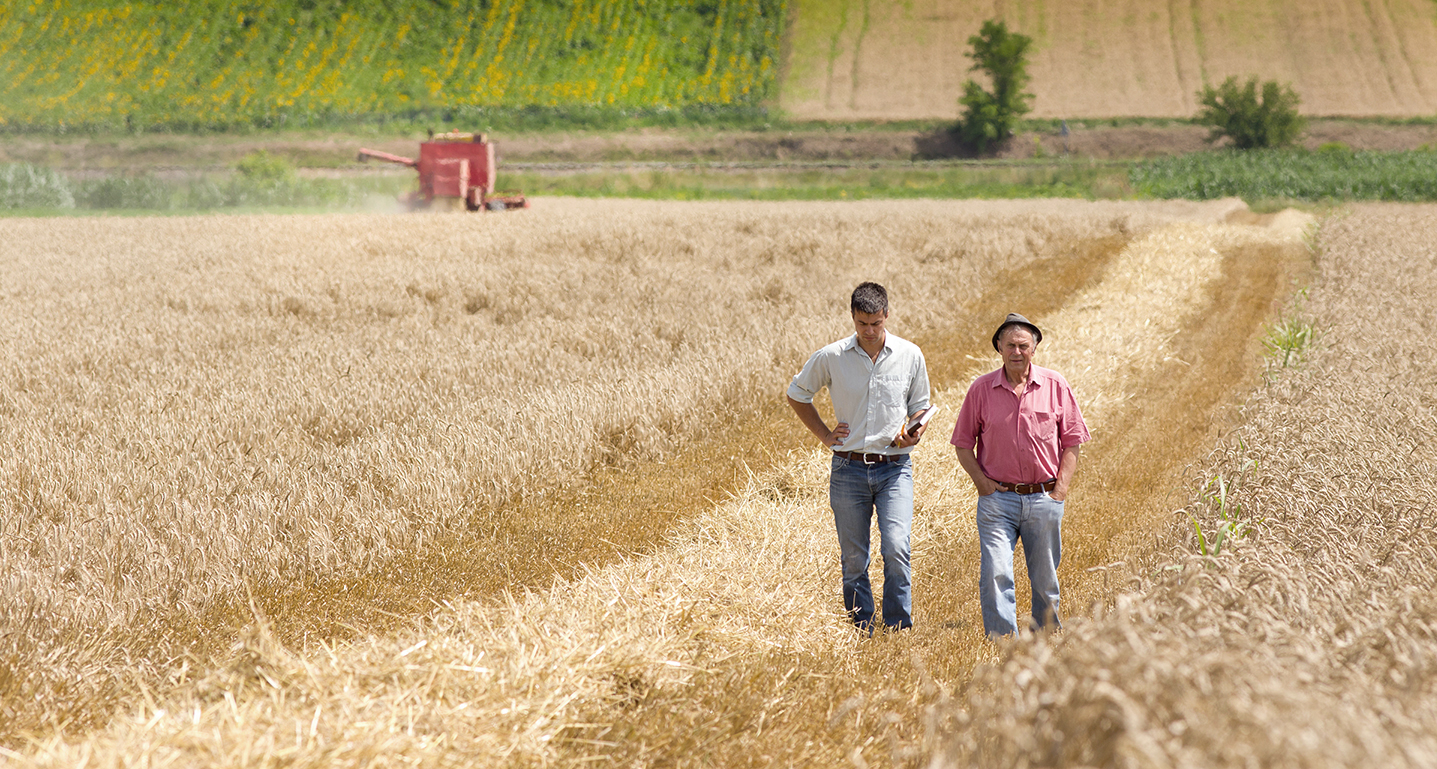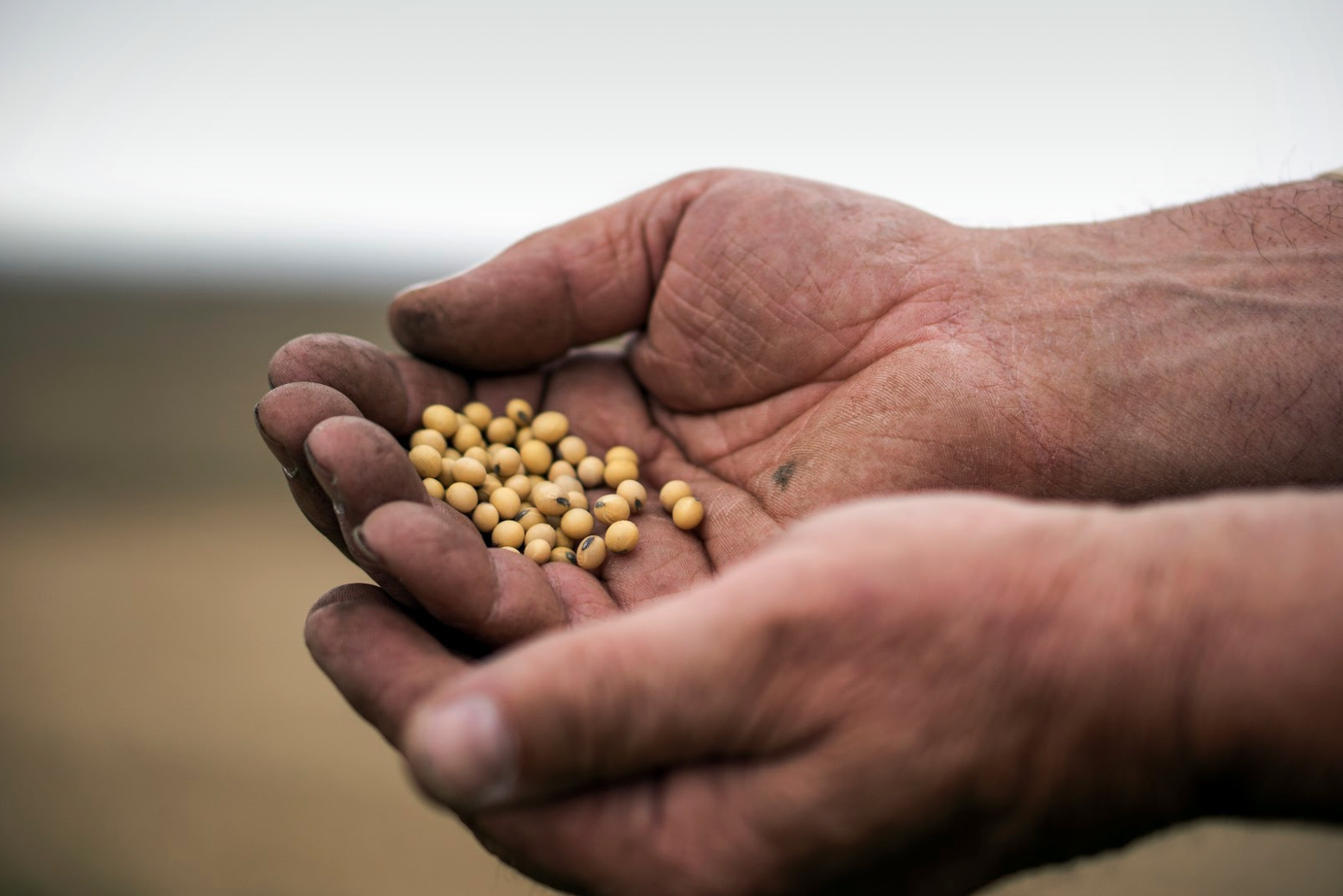Stories | July 10, 2017 | Read Time: 5 minutes
Family Farms: Passing on the Legacy
Half a Century of Hard Work
Farming is more than just a job. It’s an all-encompassing lifestyle, and it’s not uncommon for farmers to work for 50 years or more on their farms. That’s 50 years of waking up before sunrise, eating lunch in the combine, harvesting till midnight, and working long hours repairing equipment. It’s also 50 years of managing property, equipment, and livestock, often with decades spent establishing relationships with employees, neighbors, suppliers, bankers, advisors, brokers, breeders, and more.
Today, more than 97% of U.S. farms remain family owned and operated. The prospect of stepping away from the family farm lifestyle can have profound consequences, especially for the men and women who take pride in growing the world’s food. Many farmers today are paying close attention to succession planning, the process of managing the transition of farm ownership and operation from one generation to the next.
Preparing the Next Generation
Farmers often talk about their land as their legacy, their gift to the next generation. They treat it like an investment, working to improve soil health, water quality, and biodiversity along the way. Walt Bones, a farmer in Parker, South Dakota, learned about improving the land from his father.
“Our father taught us to take the resources in the area, work to improve them, and pass them on,” he explains.
However, the transfer of farm investments can be complicated and nuanced. With fewer than two million farmers currently working in the U.S., the number of people who have experience with farm succession planning is small. These factors add a layer of complexity to planning discussions. Because of this, it can be comforting to hear from others who have gone through this process.


One Farmer’s Experience
Bones has experienced succession planning from many angles. This fourth generation farmer works the land his great-grandfather homesteaded back in 1879. The operation includes two of his brothers, a brother-in-law, and three nephews. He understands what it means to take over the farm from the previous generation, and learn to manage it with siblings. He also knows what it’s like to plan for passing the farm on to the next generation.
Every Conversation Needs a Starting Point
These experiences have taught him how to prepare for important planning discussions.
“We have learned that it’s important to know and understand what you have in place currently,” he says. “Not only for estate and succession, but also the business, business finances, business direction, and business strategic plan.”
Bones and other farmers like him often establish a family governance plan structure, which could include ownership councils, family councils, and executive committees.
“The addition of a board of directors can be beneficial to the committees,” he explains. “It may also be beneficial to have non-family outside board members. Family meetings are also a good way to educate the next generation and prepare the heirs to the property and operation.”
Importance of Trusted Experts
Given the technical nature of estate laws, tax regulations, and accounting for small businesses, Bones has learned about the importance of surrounding his family with trusted advisors. These include lawyers, certified public accountants, bankers, financial planners, and insurance agents.
“Also, it can help to seek guidance from a professional mediator, a family business transition specialist, or a family counselor,” he adds. These advisors have experience working with families on exactly these types of processes.
A Mindset for Planning and Discussion
Bones has spent a great deal of time thinking about and talking about succession planning. He has learned that it’s important to seek agreement among the owners about business expectations, ownership structure, long-term vision for the enterprise, and thoughts on preparing the next generation for ownership.


When asked about what he would say to other farmers about his experience, he emphasized that no two operations are alike, so it’s vital to focus on the specifics of your operation. However, he does believe there are some things he’s learned that might benefit others.
“I have learned to remain focused on the issues,” he says. “It’s important to me that nobody is attacking anyone personally, especially a family member.”
He also learned the importance of being proactive rather than reactive, improving his own communication skills, and working hard to listen to and respect all opinions.
“Everyone affected needs to be at that table,” he notes. “We have tried to embrace a diversity in skill sets and options, and we always seek to trust in the process and be patient: it takes time.”


Keeping Farming in the Family
Today’s farmers are also working to pass on sustainability practices to the next generation. Modern agriculture supports them in these efforts, developing digital tools and equipment to help them use natural resources more efficiently, while improving things like water quality, soil health, and biodiversity.
Because of this, family farming will remain culturally, environmentally, and economically important. For these families, planning for the next generation’s role takes time, patience, and a willingness to work. Fortunately, those three traits can be found in abundance among farmers, who are resilient and accustomed to making the most of things.
Every situation is different, and there is no single right way to go about things. However, so long as farmers like Walt Bones and his family are on the job, the legacy of family farming will remain secure. And smart, focused succession planning is one tool that will help.










